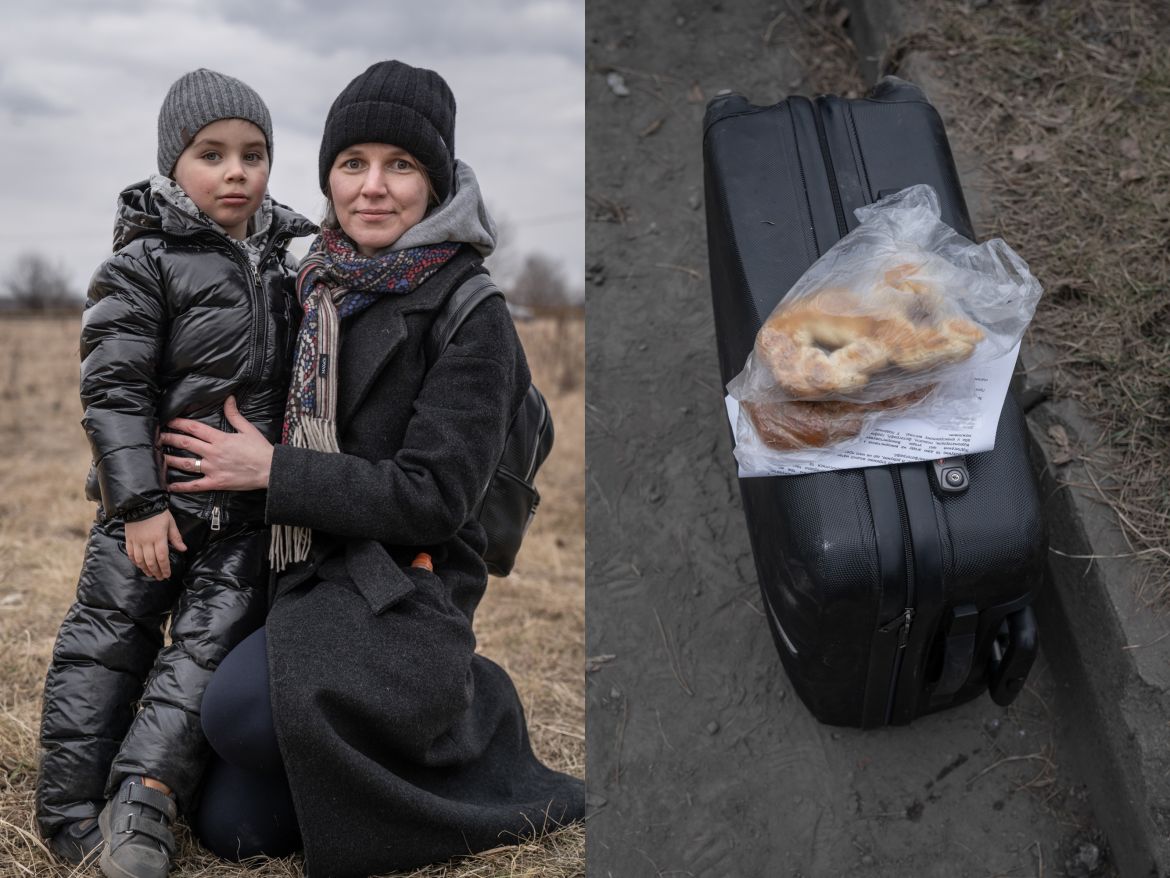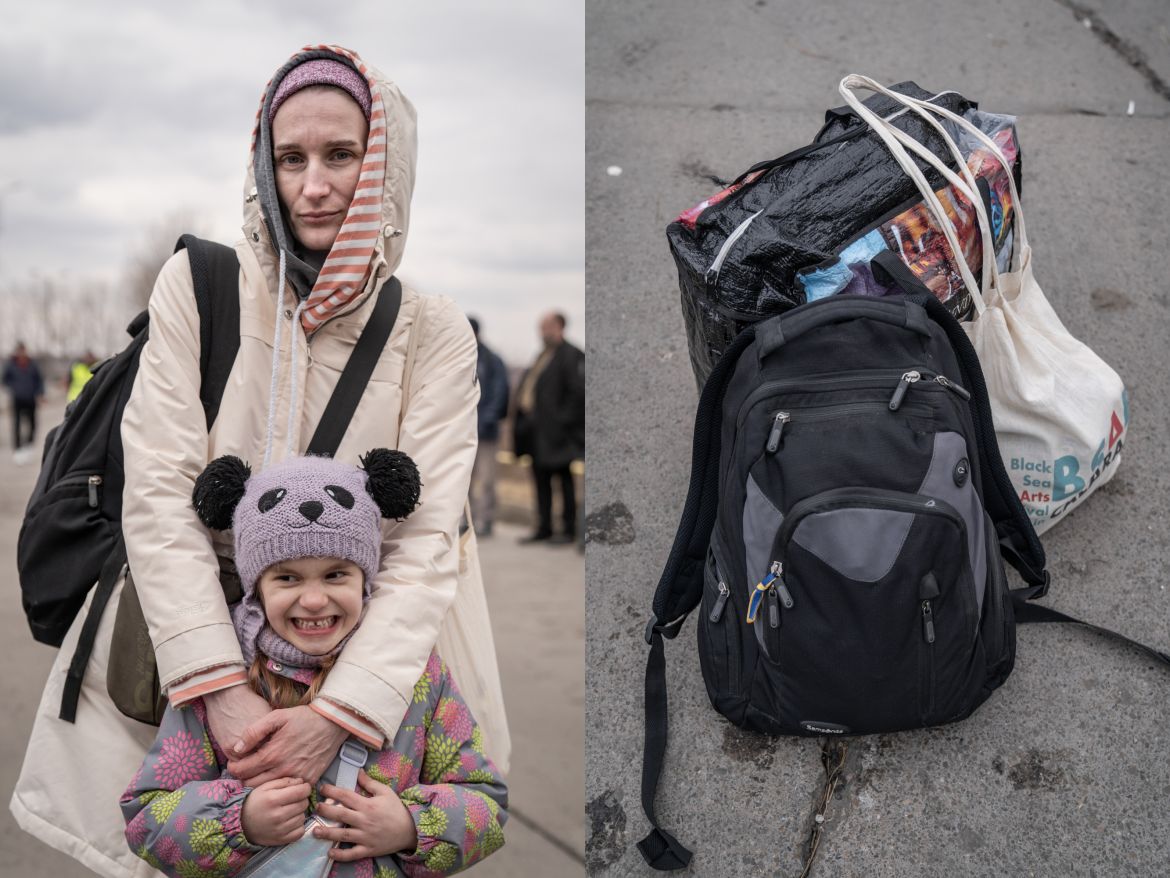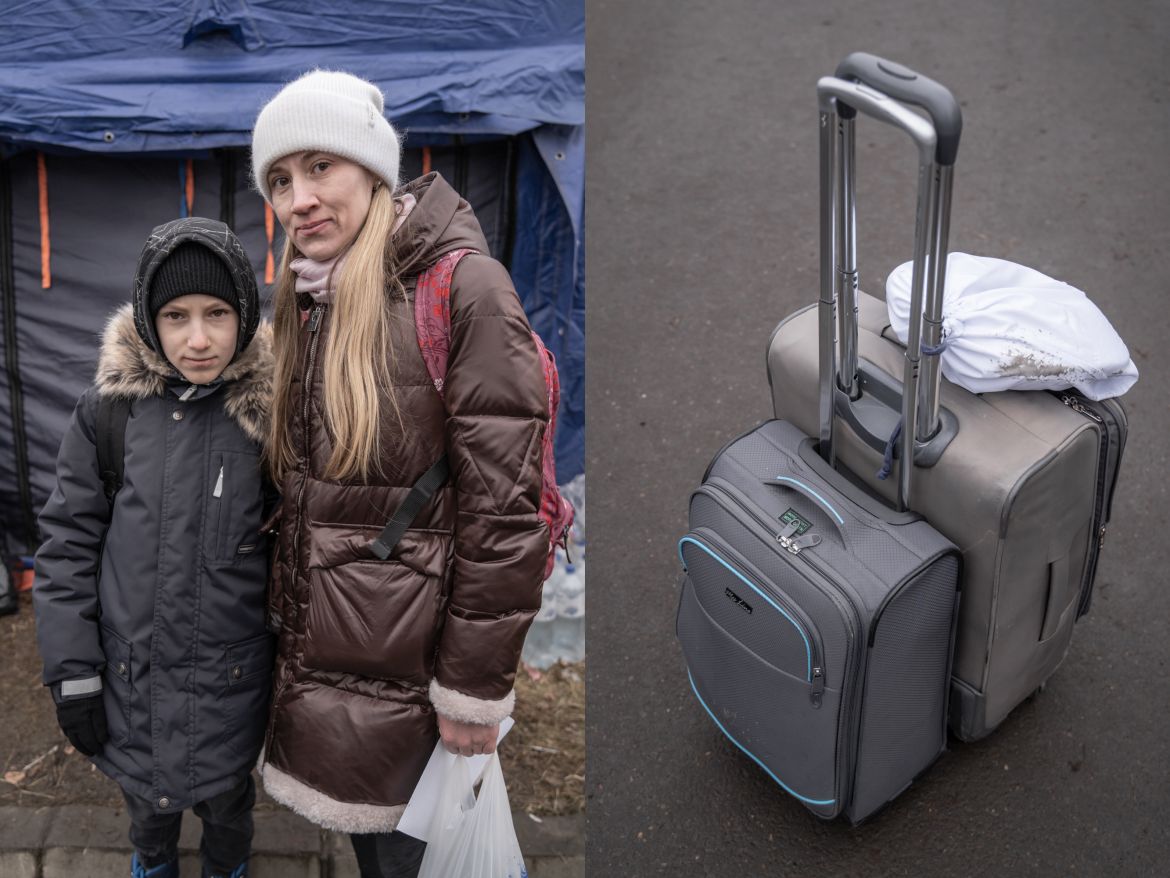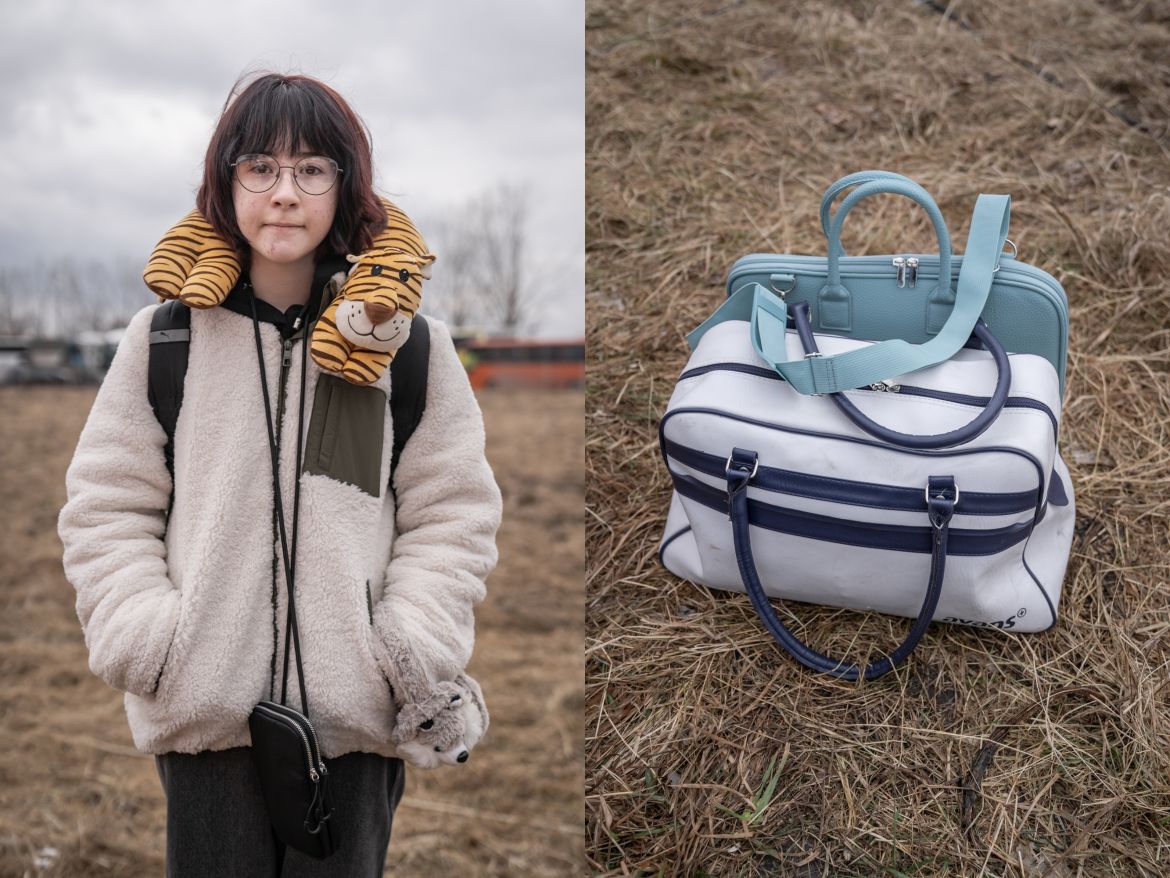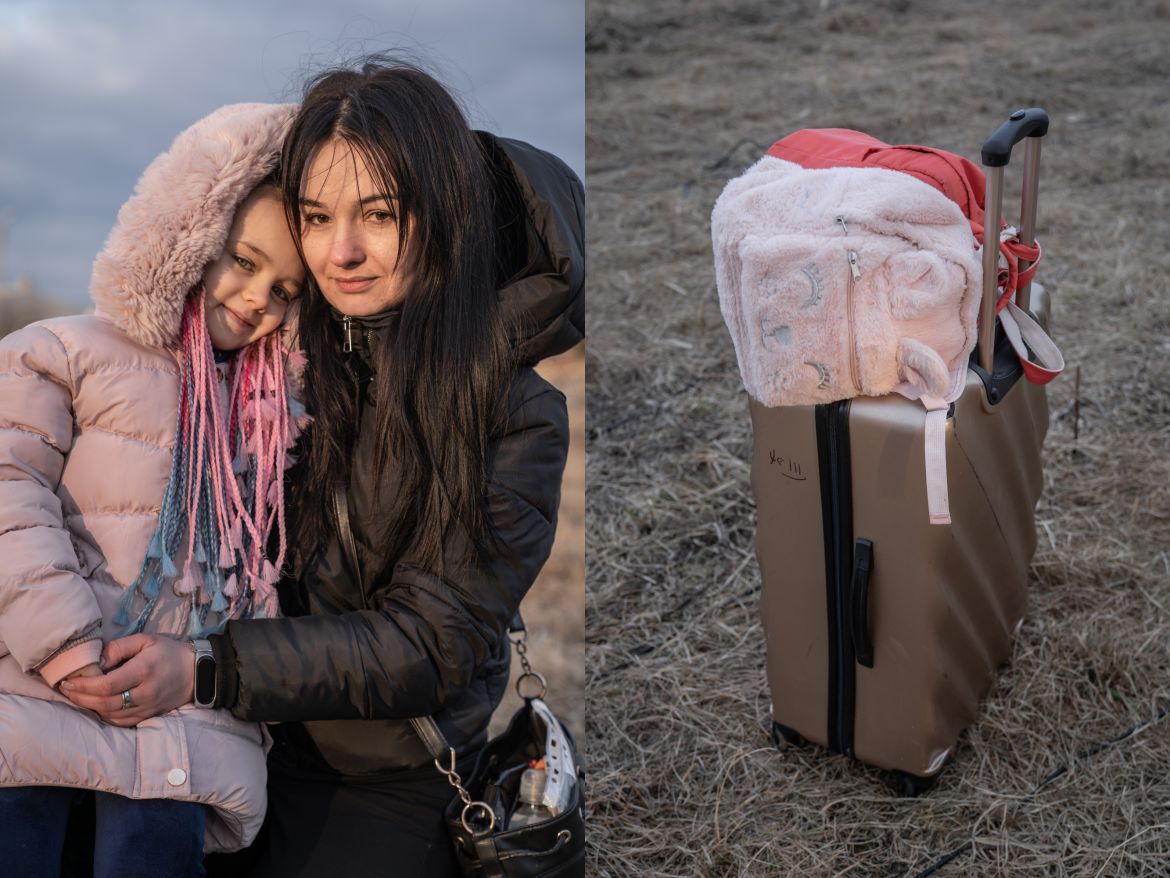In Pictures
Lives in a suitcase: The refugees fleeing the Russia-Ukraine war
At the Romanian border, mothers with young children and teenagers travelling alone carry their lives in their luggage.
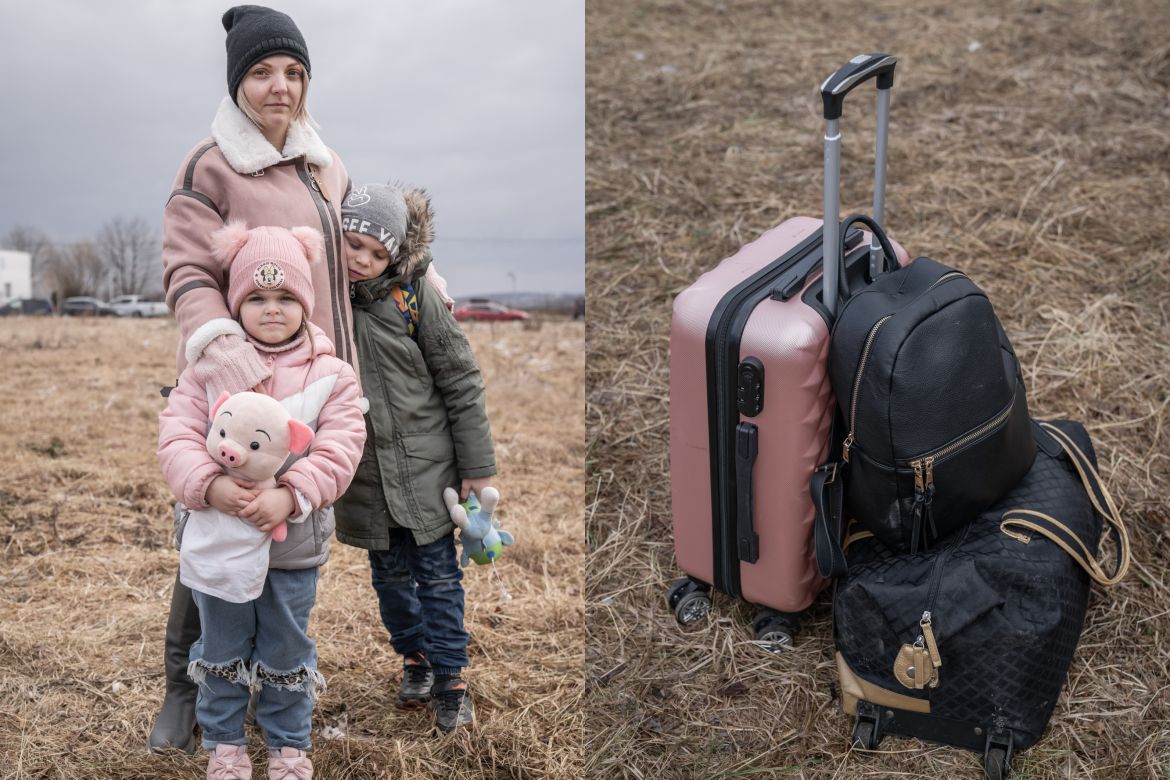
Siret, Romania – There is a sudden loud sound – a popping noise. The woman flinches and quickly looks around, surveying her surroundings. But then her face relaxes. She remembers that she has just crossed the border from Ukraine and is now in Romania, surrounded by volunteers handing out food and tea, translators helping the new arrivals to find transport and emergency workers taking care of their other needs. She is safe now.
The border crossing in Siret in northeastern Romania has never been so crowded and the locals inhabiting the small village nearby have never seen so many people passing through at once.
The road leading into Romania is lined with stalls packed with food, beverages, clothes, diapers and hygiene products. It is all for the tens of thousands of Ukrainians who, fleeing the Russian invasion of their country, are seeking safety across the border.
The queue on the Ukrainian side of the border stretches for kilometres. Teenagers, mothers with small babies, grandparents accompanying their grandchildren – they all line up, pushing or carrying what little they managed to bring with them.
Most of them travel light – either because they left in haste or because they cannot carry more on their long journey. Their lives now are crammed into a single suitcase.
